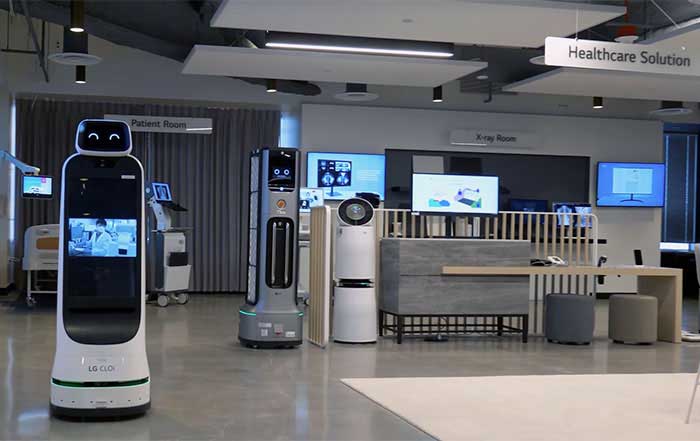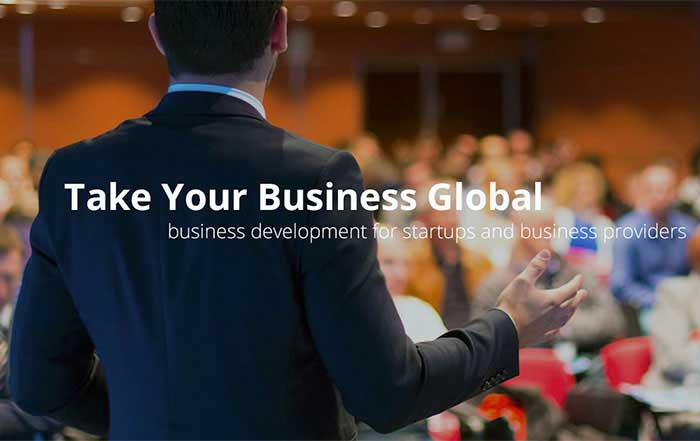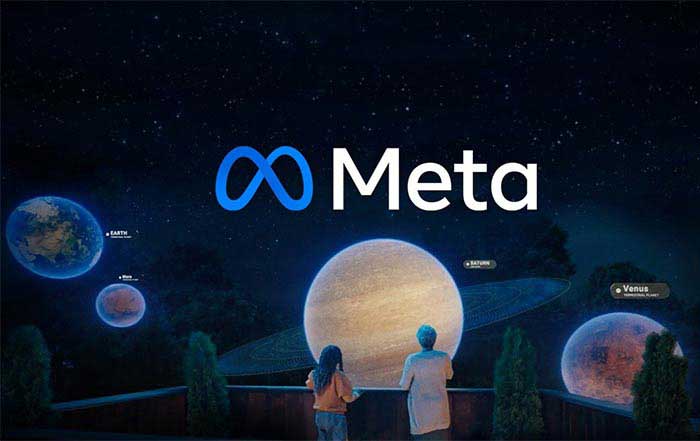Featured this week at HIMSS22, LG Electronics' new Business Innovation Center is the first comprehensive LG technology and education hub to focus on commercial displays and devices designed for medical environments. Visitors to the LG Business Solutions booth (#1473) at the 2022 global health conference can take a virtual tour of the new center, which spotlights advanced diagnostic and clinical review monitors, digital X-ray detectors, smart hospital TVs and more.
The new center, which just opened in Los Angeles, offers medical device purchasers and healthcare providers hands-on experience with market-ready displays and devices designed specifically for healthcare environments, as well as future product concepts. It has 12 distinct zones dedicated to various spaces common throughout hospitals, doctors' offices and other medical settings.
"Our new Business Innovation Center demonstrates LG's commitment to helping healthcare providers deliver enhanced service through the use of digital displays for diagnostics, telemedicine, X-ray detection, conferencing, messaging and back office needs," said Nicolas Min, senior vice president and head of LG Business Solutions USA.
The new Los Angeles Business Innovation Center is LG's third in the United States (the others being in Chicago and Atlanta). They serve as technology hubs and cutting-edge product showcases to connect engineers, contractors, integrators and executives in all facets of LG's industry-leading technology. "Business Innovation Centers are a key part of our commitment to provide customers with a unique way to interact with our solutions before making their purchasing decisions," said Min.
As the only LG Business Innovation Center in the world focused specifically on medical-related technology solutions, the new Los Angeles based facility presents visitors with a full catalog of product showcases specifically designed for use in lobbies, nurse stations, back offices, visitor lounges, consulting rooms, telemedicine centers, operating rooms, diagnostic reading bays, X-ray scan areas, patient rooms, large conference spaces and beyond.
Visitors are welcomed to LG's healthcare-of-the-future experience, by the LG CLOi GuideBot robot, large-format direct-view LED displays and sliding doors built from multiple Transparent OLED displays.
Progressing through the center, guests learn how LG's Thin Client cloud-based workstations can help enhance safety and security while UltraWide™ Ergo monitors provide ample screen real estate for critical tasks and feature adjustable swivel stands for information sharing and group viewing.
Various models from the LG gram laptop line are featured, along with LG ProBeam 4K Laser projectors, UltraFine™ 4K monitors and One:Quick Flex displays, in addition to demonstrations of the powerful capabilities of LG's proprietary webOS™ content and display management platform. Special-purpose products on display include LG's Digital X-ray Detector, Diagnostic Monitors, Clinical Review Monitors, and Surgical Monitors.
When it comes to special features, visitors learn about simple One:Quick Share screen sharing with compatible LG digital signage models, LG Acquisition Workstation Software that processes x-ray images and the touchscreen Arm TV intended for bedside installation and use by patients.
"Our West Coast customers and partners now have the ability to visit our stunning showroom and product center to test and learn how the latest innovations can improve their operations and increase efficiency across a broad range of healthcare needs," Min said.
About LG Business Solutions USA LG Electronics USA's Business Solutions division serves commercial display customers in the U.S. lodging and hospitality, digital signage, systems integration, healthcare, education, government and industrial markets. Based in Lincolnshire, Ill., with its dedicated engineering and customer support team, LG Business Solutions USA delivers business-to-business technology solutions tailored to the particular needs of business environments. Seven-time ENERGY STAR® Partner of the Year LG Electronics USA Inc., based in Englewood Cliffs, N.J., is the North American subsidiary of LG Electronics Inc., a $63 billion global force in consumer electronics, home appliances and air solutions. For more information visit LGSolutions.com.




